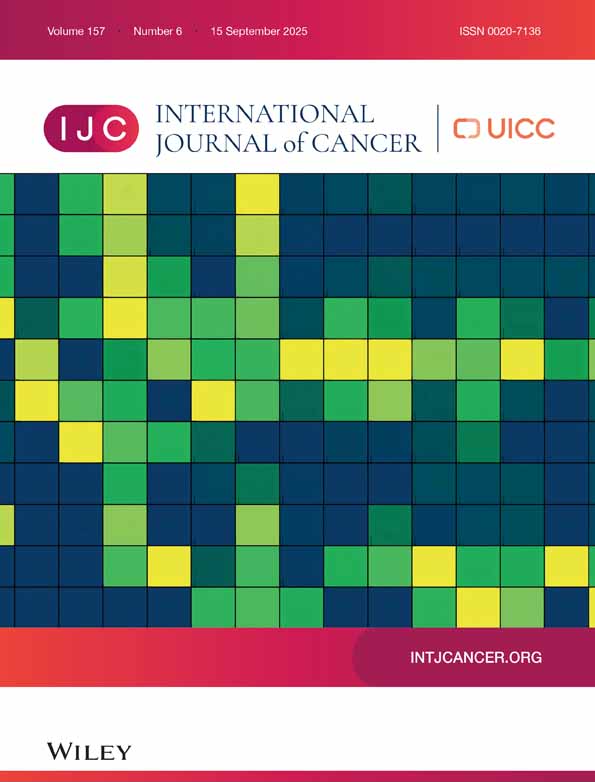Flt3 ligand lessens the growth of tumors obtained after colon cancer cell injection in rats but does not restore tumor-suppressed dendritic cell function
Abstract
A defective function of the antigen-presenting cells may represent one of the ways used by cancer cells to escape the immune response. We have previously shown that human and rat colon carcinomas were infiltrated by dendritic cells that did not express the B7 co-stimulatory molecules required for inducing an efficient T-cell response. Flt3 ligand is a cloned hematopoietic growth factor that markedly augments the number of functional dendritic and NK cells in lymphoid and non-lymphoid tissues and exerts anti-tumor activity in various experimental models. We show here that repeated Flt3 ligand administration delays the s.c. growth of rat colon cancer cells in syngeneic animals without inducing tumor regression. In tumor-bearing animals, Flt3 ligand has a limited stimulatory effect on the antigen-presenting capacity of intra-tumoral and splenic dendritic cells, without restoring the high functional level of dendritic cells from tumor-free animals. Moreover, Flt3 ligand–mediated activation of NK cell cytotoxicity decreases when the tumor mass increases. Our results indicate that Flt3 ligand treatment of tumor-bearing animals does not sufficiently overcome tumor-induced immunosuppression to restore the inhibited functions of dendritic and NK cells and allow complete tumor regression. Int. J. Cancer 86:827–834, 2000. © 2000 Wiley-Liss, Inc.




